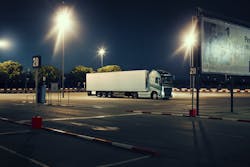Working under the perhaps unsurprising name “Climate-Smart City Distribution” project, this 36-month effort involved 393 vehicles operating Gothenburg, Sweden, on a wide variety of fuels – biodiesel, biogas and dimethyl ether (DME), hybrid technology, and methane-diesel fuel – and resulted in a reported 30% average reduction in carbon dioxide (CO2) truck emissions; increasing in some cases from 65% to 84%, depending on the fuel and type of vehicle.
Here’s a breakdown: Of the 393 vehicles that participated in this project, some 48 are light gas-driven vehicles, 44 are heavy methane-diesel vehicles and four are heavy hybrid vehicles.
Lars Mårtensson, environmental director for Volvo Trucks, noted that in downtown Gothenburg, some 6,500 companies required daily goods distribution services. Thus he believes one of the results of this three-year project is the finding that with better coordination and more efficient utilization of existing vehicles, both congestion and emissions can be reduced even further.
“In order to fully exploit the available potential, it’s not enough for haulage companies to improve their logistics systems,” he explained. “It is equally important that transport purchasers become better at coordinating their purchases, and here there is a whole lot of room for improvement.”
Opening up bus lanes to distribution traffic and undertaking more transportation operations when there is less traffic on the roads are other examples of relatively simple measures that can deliver significant environmental benefits, Mårtensson said.Yet he also stressed that most difficult challenge, however, was not to develop new fuels or new vehicle technology but to improve the efficiency of current transport operations.
“With more energy-efficient vehicles, fuels with a lower environmental impact and smarter logistics, it is possible to achieve significant improvements,” added Olof Persson, Volvo’s president and CEO.
“The problems are the same the world over,” he pointed out. “Populations are growing, along with the need for transport. This brings with it increasing environmental problems such as congestion, noise, poor air quality and climate impact.”
Yet Mårtensson believes this trend can be reversed. “The road ahead goes via closer cooperation between different actors and here we definitely have a role to play, both locally and globally,” he said.
The other critical factor here, of course, is whether fleets and their customers can save money by making such changes to both fuel and logistical patterns. That to my mind will be the key to make such efforts trult successful over the long term.


